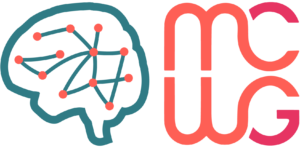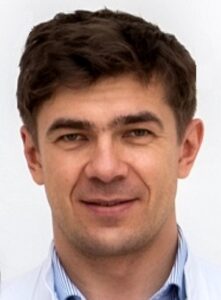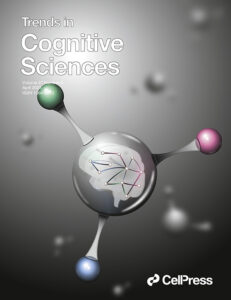
Hello!
We are excited to begin our 2024-2025 Molecular Connectivity Online Series, MCOS… again! We are very sorry for any convenience that may have arisen last month as we had to move the first talk of the season to October!
And so, without further ado, please join us on Friday October 18th, 2024, 15:00 CEST, 9:00 EDT for our MCOS with Igor Yakushev, MD, who will discuss findings related to test-retest reproducibility of structural, functional and molecular estimates of brain connectivity at rest.
Also, we are pleased to share that our educational course and symposium for OHBM2024 are now online! Please find the educational course here and symposium here.
Please find further details and registration link for MCOS below!
We are pleased to announce the next MCOS talk featuring Igor Yakushev, MD!
Date: October 18th, 2024
Time: 15:00 CET, 9:00 EST
Title: Test-retest reproducibility of structural and proxy estimates of brain connectivity at rest
Please join us for this 30 minute presentation to be followed by discussion (~25 minutes).
Please register here.
Abstract: While structural connectivity (SC) is indicative of actual anatomical connectivity and derived at a single subject level, proxy estimates of brain connectivity such as functional connectivity (FC) from functional magnetic resonance imaging (MRI), intersubject covariance of regional gray matter volume (GMVcov) from structural MRI, and intersubject covariance of regional 18F-fluorodeoxyglucose uptake (FDGcov) from positron emission tomography are derived from statistical dependencies between regional measurements. To understand, in how far these estimates are able to capture physiological and pathological changes in brain connectivity, knowledge on their reproducibility is essential. In this study, we determined reproducibility of group level SC, FC, GMVcov, and FDGcov in the same 55 healthy subjects at rest using a simultaneous PET/MRI acquisition protocol. Reproducibility was determined using Spearman’s correlation coefficient, coefficient of variation, and proportion of repeatedly (test and retest) present connections.

Igor Yakushev obtained his MD in 2010 from the University of Mainz, Germany. In 2012, after residency in Psychiatry and Neurology, he moved to Munich for residency in Nuclear Medicine at the Technical University of Munich (TUM), Germany. Since 2013 he has led the research group “Multimodal imaging of normal and pathological cognition”. Since 2015 he is the Head of Neuroimaging, since 2018 Senior Consultant in Nuclear Medicine at the Dept. of Nuclear Medicine, TUM. He is an Associate Faculty at the Munich Center for NeuroSciences “Brain and Mind”. Igor Yakushev has served in the Board of Directors of the Brain Imaging Council, Society of Nuclear Medicine and Molecular Imaging, as well as in the Neuroimaging Committee, European Association of Nuclear Medicine. His research is focused on mechanisms of brain connectivity and development of imaging-based biomarkers for neurodegenerative and neuro-oncological disorders.
You can find more about Igor here!
The MCOS promotes rigor in research and resource sharing. We aim to hold MCOS every third Friday of the month, subject to change due to speaker availability.
The following MCOS seminar will be held on Friday, November 22nd, 2024, and please note a change in time as it will be held at 22:00 AEST, 14:00 CET, 8:00 EST
Hamish Deery (University of Monash, Australia) will discuss “Metabolic connectivity in ageing”
Please stay tuned for reminders on social media!
We are excited to announce MCWG members will hold a Round Table at the 37th Annual Congress of the European Association of Nuclear Medicine (EANM), Hamburg, Germany October 19-23, 2024
Date: Monday October 21th, 2024
Time: 09:45 – 11:15 CET
Title: Round Table: Molecular Imaging of Brain Connectivity
Moderators: Silvia Morbelli (Turin, Italy) Igor Yakushev (Munich, Germany)
Arianna Sala (Liege, Belgium): Brain PET imaging 2.0: how can molecular imaging capture brain connectivity?
Alexander Drzezga (Cologne, Germany): Disease-specific patterns of brain dysconnectivity
Jorge Sepulcre (New Haven, United States of America): Establishing causal spreading of tau and amyloid with molecular imaging
More information can be found here.
Please visit MCWG members and colleagues who are presenting:
Silvia Paola Caminiti, Débora E. Peretti and Chunmeng Tang
Anna Lisa Martini, Giulia Carli, Silvia Paola Caminiti, Lorenzo Kiferle, Andrea Leo, Daniela Perani, Stelvio Sestini
Title: Brain metabolic connectivity and neurological symptoms persistence in Long-COVID
Presentation Number: OP-307 (TROP Session: Inflammation & Infection Committee: Top on Inflammation and Infection Imaging)
Time and location: Monday, October 21, 2024 8:00:00 AM – 9:30:00 AM, Hall Y10-Y12
Topic: This study delves into brain metabolic connectivity of SARS-CoV-2 survivors from acute-subacute to chronic phase aiming to shed light on the mechanisms underlying the persistence of neurological symptoms in long-COVID patients.
Débora E. Peretti, Sanne K. Meles, David Vállez García, Giulia Carli, Hans J. Van der Horn, Klaus L. Leenders, Remco J. Renken
Title: Open-source MATLAB code for the identification of spatial covariance patterns in neuroimaging data
Poster: EP-0764 (Session EP-51)
Date and time: The poster will be accessible throughout the conference at the e-poster area
Topic: An open-source SSM/PCA software easy to apply to difference radiotracers and disorders.
Chunmeng Tang, Michel Koole, Koen Van Laere, Philip Van Damme, Joke De Vocht
Title: Support Vector Machine Classification of 18F-FDG PET Scans in ALS Patients with and without C9orf72 Mutations versus Controls.
Presentation Number: OP-857 (Session: 1805 Cutting Edge Science Track – TROP Session: Physics Committee: Data Analysis: Neuro & Cardio)
Time and location: Wednesday, 23/10, 9:45:00 AM – 11:15:00 AM, Hall Y4-Y9
Topic: The classification between C9-ALS and sALS achieved accuracies higher than 70% for both classes, showing that the pattern of brain involvement in C9-ALS considerably differs from sALS.
The MCWG Outreach Council invites you to submit information about papers, conferences, presentations or other events or news related to brain and molecular connectivity as well as any job opportunities that you wish to share with the community!
Please share for consideration by the final day of each month using this form.

The MCWG is made up of four international and multidisciplinary councils dedicated to promoting molecular connectivity research via dissemination of methods, results, collaboration, and resource sharing (e.g. datasets, tools) within the scientific community. We encourage the neuroscientific community to take an integrative perspective in study of the brain connectome, where various methods including MRI-based techniques, electrophysiological tools, and molecular imaging advance our understanding of the brain. Please find fundamental questions outlined here: “Brain connectomics: time for a molecular imaging perspective?”
Our website can be found here. We also invite you to join the MCWG!